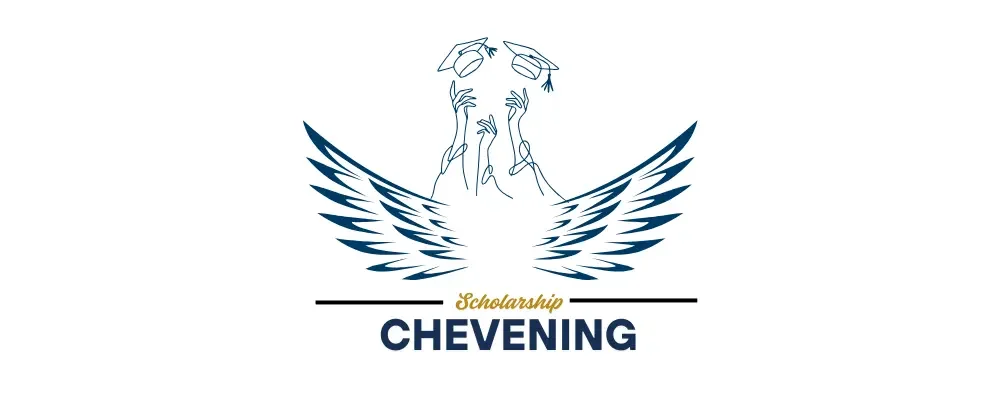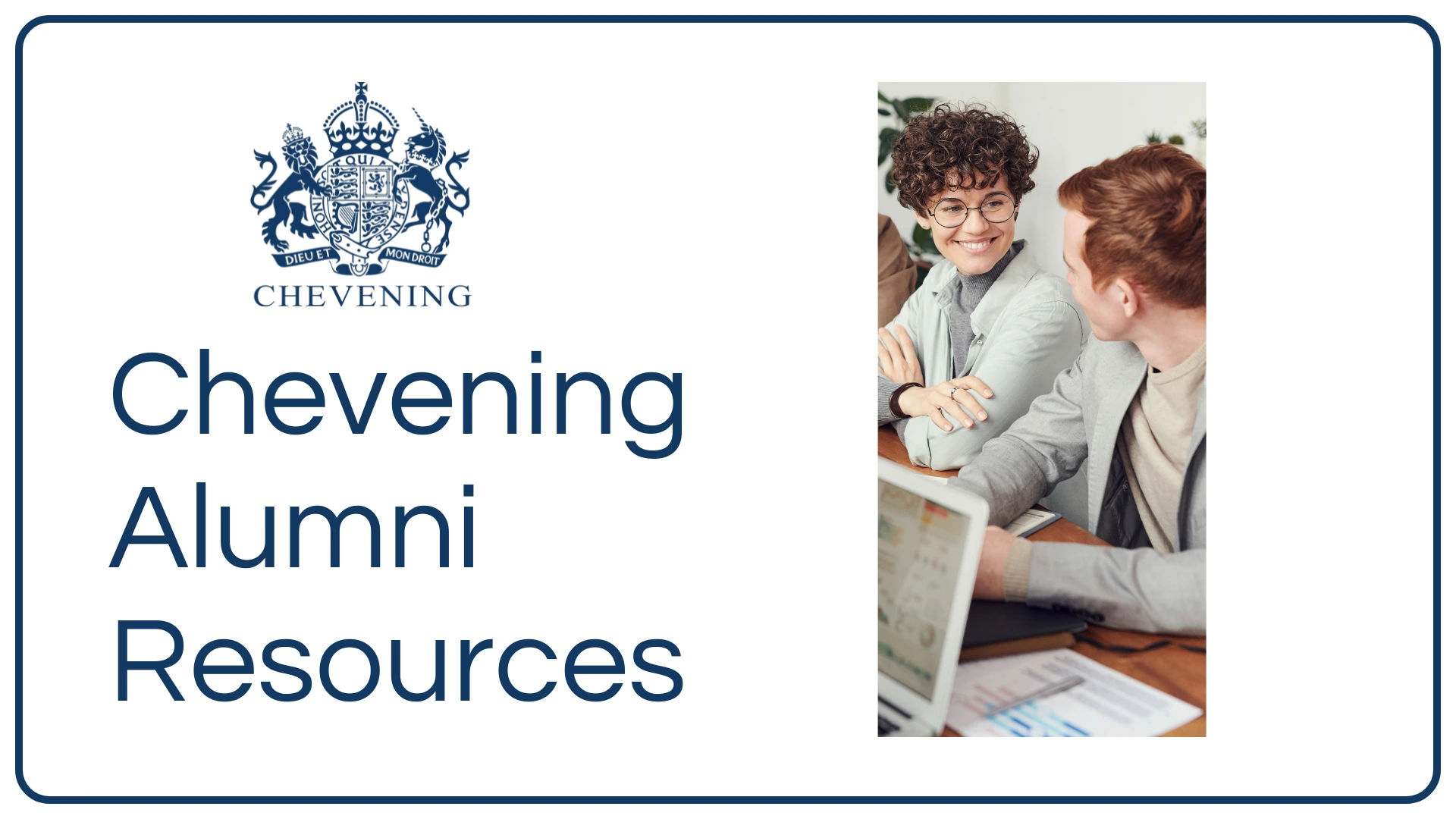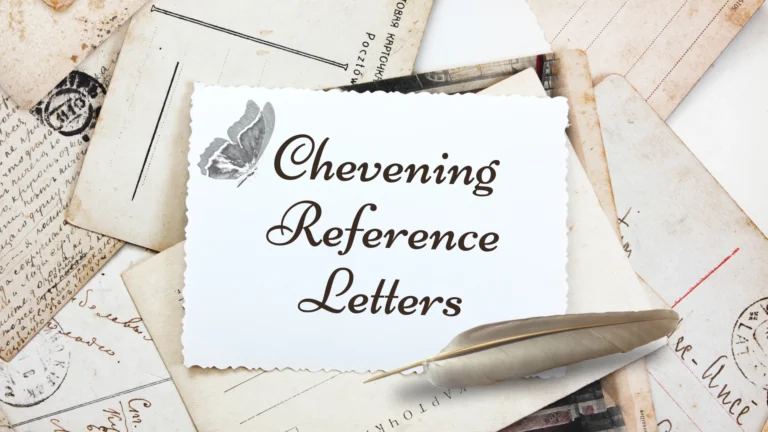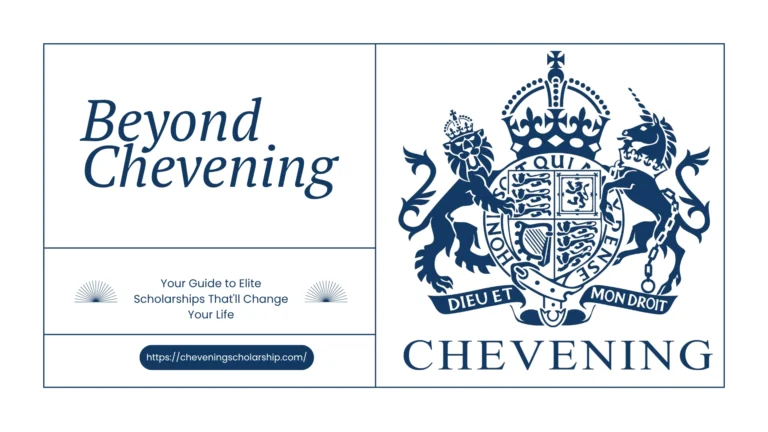The Ultimate Guide to Chevening Alumni Resources: Maximizing Your Network After Graduation
Here’s a truth that nobody tells you when you’re celebrating your UK graduation: the real Chevening experience doesn’t end when you collect your diploma. It actually begins.
I know what you’re thinking. You’ve just spent a year juggling lectures, essays, networking events, and trying to experience as much of the UK as humanly possible on a student budget. You’re exhausted. You’re ready to head home and apply everything you’ve learned. And now I’m telling you that you’re not done?
Not quite. What I’m saying is this: that graduation certificate you’re holding isn’t just proof of academic achievement. It’s your lifetime membership card to one of the world’s most powerful professional networks—and most graduates have no idea how to use it.
The alumni resources available to Chevening graduates are vast, underutilized, and potentially career-changing. But here’s the catch: they don’t come with an instruction manual. Nobody hands you a “How to Be a Successful Chevening Alumnus” guidebook as you board your flight home.
So let’s fix that. Consider this your comprehensive guide to navigating, leveraging, and maximizing every opportunity the Chevening alumni network offers.
Understanding the Chevening Alumni Network
Before we dive into specific resources, let’s talk about what you’ve actually joined. The Chevening alumni network isn’t some abstract concept or a LinkedIn group that sends occasional spam. It’s a living, breathing global community of over 55,000 leaders across more than 160 countries.
Think about that number for a moment. 55,000 people who’ve been through exactly what you’ve experienced. They’ve navigated the same application stress, survived the same British winter, questioned whether they truly understood their professor’s accent, and returned home determined to make a difference.
These aren’t just alumni—they’re current ministers, ambassadors, supreme court judges, leading journalists, successful entrepreneurs, influential academics, and change-makers across every sector imaginable. And they’re all part of your network now.
The Chevening alumni programme is structured around a simple but powerful idea: your scholarship wasn’t just about your personal development. It was an investment in collective leadership capacity. The Foreign, Commonwealth & Development Office (FCDO) funded your education expecting not just that you’d succeed individually, but that you’d collaborate, support each other, and amplify each other’s impact.
This means the alumni resources aren’t extras or perks—they’re integral to what Chevening is trying to achieve. Using them isn’t optional if you’re serious about maximizing the opportunity you’ve been given.
The Alumni Benefits You Didn’t Know You Had
Let’s start with the basics. What alumni benefits are actually available to you as a Chevening graduate?
Lifetime Network Access
Your access to the Chevening network doesn’t expire. Ever. Whether you graduated last year or twenty years ago, you remain part of the community. This means:
- Access to the global alumni database (once you’ve registered)
- Invitations to alumni events, both in your country and globally
- Eligibility for alumni-specific opportunities and funding
- Connection to new scholars each year
- Continued relationship with British embassies and high commissions
Career Support Services
The alumni career support infrastructure includes:
- Job opportunities shared through the network
- Career coaching and mentoring programs
- Professional development webinars and workshops
- Access to leadership training programs
- Connections to UK and international employers seeking Chevening talent
Funding Opportunities
Through the Chevening Alumni Programme Fund and other mechanisms, alumni can access:
- Project funding for impact initiatives
- Support for entrepreneurial ventures
- Grants for collaborative alumni projects
- Seed funding for community development programs
- Financial support for continuing education
Platform and Visibility
Chevening actively promotes alumni achievements through:
- Alumni spotlight features on official channels
- Speaking opportunities at Chevening events
- Representation at international forums
- Media connections for thought leadership
- Platforms to share your impact stories
Continued UK Connections
Your relationship with the UK doesn’t end at graduation:
- Some UK university resources remain accessible to alumni
- Connections to British institutions relevant to your field
- Opportunities to return to the UK for short-term fellowships or programs
- Links to UK organizations working in your sector
- Ongoing diplomatic relationships through embassies
Navigating the Alumni Resource Portal
The alumni resource portal is your gateway to everything Chevening offers post-graduation. But like any portal, it’s only useful if you know how to navigate it.
Getting Started
First things first: if you haven’t already registered in the alumni database, do it now. Seriously, put this article down and register. I’ll wait.
The registration process requires:
- Your basic contact information
- Your current employment details
- Your social media profiles (particularly LinkedIn)
- Your areas of expertise and interest
- Your willingness to participate in various alumni activities
Why does all this matter? Because the database isn’t just a directory—it’s how Chevening matches opportunities to alumni. Grant opportunities in environmental policy? They search the database for alumni working in that field. Need a speaker on digital innovation? They search for alumni with that expertise.
If your profile is incomplete or outdated, you’re invisible to these opportunities.
Key Portal Features
Once you’re registered, familiarize yourself with these essential features:
Events Calendar: Lists upcoming alumni events and conferences globally. These range from major international conferences to local networking meetups.
Opportunities Board: Where alumni job opportunities, grant applications, speaking invitations, and collaboration proposals are posted.
Resource Library: Access to toolkits, best practice guides, impact reports, and professional development materials.
Alumni Directory: Searchable database of fellow alumni (privacy settings apply). This is gold for finding alumni in your field, region, or with specific expertise.
Impact Sharing Platform: Where you can submit your own success stories and see what other alumni are achieving.
Communication Tools: Direct messaging, discussion forums, and group creation features.
The portal is constantly evolving. Chevening regularly adds new features based on alumni feedback, so explore it periodically rather than assuming you know everything it offers.
Alumni Networking: Beyond LinkedIn Connections
Let’s talk about alumni networking opportunities because this is where most people get it wrong. They connect on LinkedIn, send a few messages, and think they’re networking. That’s not networking—that’s digital bookmarking.
Real networking within the Chevening community looks different.
Regional Alumni Groups
Alumni regional chapters exist in most countries and major cities. These aren’t just social clubs (though the social element is valuable). They’re professional communities that:
- Organize regular meetups and professional events
- Coordinate local impact projects
- Provide peer support and mentorship
- Create job opportunities through member connections
- Advocate for policy changes collectively
- Support incoming Chevening scholars
Joining your local chapter should be one of your first post-graduation moves. These are the people who understand both the Chevening experience and your local professional context—an invaluable combination.
Sector-Specific Groups
Beyond geography, alumni professional groups organize around sectors and disciplines:
- Health policy alumni
- Media and journalism alumni
- Environmental sustainability alumni
- Legal and judicial reform alumni
- Education and academic alumni
- Technology and innovation alumni
- Arts and culture alumni
These groups facilitate alumni research collaboration, knowledge sharing, and cross-country learning on sector-specific challenges. If you’re working in healthcare in Kenya, connecting with health policy alumni from Ghana, India, and the Philippines can provide comparative insights that transform your approach.
Virtual Communities
The alumni online community platforms have expanded dramatically, especially post-pandemic. Alumni social media groups on WhatsApp, Telegram, LinkedIn, and Facebook host thousands of active members sharing opportunities, asking questions, and supporting each other.
But here’s a networking tip: don’t just lurk. Contribute. Share your expertise. Answer questions. Post opportunities. The value you get from these communities directly correlates with the value you give.
Effective Alumni Networking Tips
Based on watching successful alumni networkers over the years, here’s what works:
Be Specific When Reaching Out: “I’d love to pick your brain” is vague and gets ignored. “I’m designing a maternal health program and noticed you led similar work in Uganda—could I ask three specific questions about stakeholder engagement?” gets responses.
Offer Before Asking: See an opportunity perfect for a fellow alumnus? Share it. Know someone who could help another alumnus? Make the introduction. Build social capital before you need to spend it.
Show Up Consistently: Attend alumni events regularly. Comment on posts. Participate in discussions. Visibility builds recognition, which builds relationships.
Follow Up and Follow Through: Met someone at an alumni event? Follow up within 48 hours. Promised to share a resource? Do it. Reliability is rare and valuable.
Think Long-Term: Don’t network only when you need something. Build relationships continuously, not transactionally.
Accessing Alumni Career Support
The alumni career support infrastructure is more sophisticated than most graduates realize. It’s not just a job board—it’s a comprehensive career development ecosystem.
Alumni Mentoring Programs
Alumni mentoring programs operate at multiple levels:
Peer Mentoring: Recent graduates mentored by alumni 3-5 years ahead in their careers. This provides practical, immediately applicable guidance on early-career challenges.
Senior Mentoring: Mid-career alumni mentored by senior leaders who’ve been in the network for 10+ years. This focuses on strategic career development and leadership positioning.
Sector Mentoring: Alumni in specific fields mentored by recognized leaders in those sectors, whether they’re alumni or not (Chevening facilitates these connections).
Reverse Mentoring: Senior alumni mentored by younger alumni on emerging trends, technology, or evolving professional contexts.
To access alumni professional mentorship, you typically need to:
- Register your interest through the portal
- Complete a profile explaining your career goals and challenges
- Specify what kind of mentorship would be most valuable
- Commit to the mentorship timeline and expectations
The best mentorships happen when you’re clear about what you need and ready to be an active participant, not a passive recipient.
Career Coaching Services
Alumni career coaching is available through several channels:
Virtual Workshops: Regular sessions on resume building, interview preparation, personal branding, salary negotiation, and career transitions.
One-on-One Coaching: Limited slots available for alumni at career crossroads or pursuing significant transitions.
Industry-Specific Guidance: Coaching tailored to particular sectors, especially for alumni entering new fields.
These services are often provided by professional career coaches or senior alumni with HR and recruitment experience.
Job Placement and Opportunities
While Chevening doesn’t guarantee employment (nothing does), the network provides significant advantages:
Alumni Job Boards: Organizations specifically seeking Chevening talent post opportunities directly to alumni. These employers understand Chevening’s selection criteria and trust the network’s quality.
Embassy and High Commission Positions: British diplomatic missions regularly recruit alumni for various roles.
International Organization Opportunities: Bodies like the UN, World Bank, and regional development banks value Chevening alumni and often circulate opportunities through the network.
Private Sector Connections: Companies operating internationally, particularly UK businesses expanding into emerging markets, seek alumni who understand both UK professional standards and local contexts.
Entrepreneurial Support: For alumni building their own ventures, alumni entrepreneurial support includes connections to investors, business mentorship, and sometimes seed funding.
Leadership Development for Alumni
Alumni leadership development doesn’t stop at graduation. In fact, it often accelerates.
Advanced Leadership Training
Chevening regularly offers alumni-specific leadership programs:
Regional Leadership Workshops: Intensive multi-day programs bringing together alumni from specific regions to tackle shared leadership challenges.
Sector Leadership Programs: Deep-dive training for alumni leading change in particular sectors (governance, education, health, environment, etc.).
Executive Education Opportunities: Occasional partnerships with UK business schools offer alumni access to executive education programs at reduced cost or on scholarship.
Virtual Leadership Series: Online programs covering topics like leading through crisis, digital transformation, managing diverse teams, and strategic communication.
The Alumni Ambassador Program
Becoming an alumni ambassador is one of the highest-impact ways to engage with Chevening post-graduation. Alumni ambassador programs involve:
Recruitment Support: Speaking at Chevening information sessions, advising potential applicants, and conducting pre-departure orientations for incoming scholars.
Profile Raising: Representing Chevening at conferences, in media, and at public events.
Network Building: Strengthening alumni communities in your region and facilitating connections.
Feedback Provision: Advising Chevening on program improvements based on alumni and scholar experiences.
Ambassadors receive training, visibility, and often funding for their activities. More importantly, they develop skills in public speaking, program management, and community building while giving back to the scholarship that supported them.
The Chevening Alumni Programme Fund
Let’s talk money. The Chevening Alumni Programme Fund is probably the most underutilized alumni resource, primarily because people don’t understand what it is or how to access it.
What the Fund Supports
The Alumni Programme Fund provides grants for alumni-led projects that:
- Address development challenges in your home country
- Demonstrate UK-home country collaboration
- Engage multiple alumni (collaborative projects are prioritized)
- Create measurable impact
- Align with UK government priorities and your country’s development needs
Typical funded projects include:
Professional Training Programs: Alumni designing and delivering training for professionals in their sectors.
Policy Research and Advocacy: Evidence-gathering projects that inform policy decisions.
Community Development Initiatives: Projects addressing local challenges through innovative approaches.
Knowledge Exchange Programs: Facilitating learning between UK institutions and organizations in alumni home countries.
Network-Building Events: Large-scale conferences or workshops that strengthen professional communities.
Application Process
Alumni grant application tips based on successful applicants:
Start with Clear Objectives: What specific change will your project create? Vague goals like “raise awareness” don’t cut it. Specific outcomes like “train 100 teachers in digital literacy” do.
Budget Realistically: The fund supports modest projects (typically a few thousand pounds). Don’t propose something requiring £50,000 in funding. Design something impactful within realistic budget constraints.
Demonstrate Sustainability: How will the project continue or replicate after grant funding ends? Sustainability is weighted heavily in selection.
Show Collaboration: Projects involving multiple alumni, or partnerships between alumni and UK institutions, score better than solo efforts.
Provide Evidence: Use data, research, and case studies to justify your approach. Show you’ve thought deeply about the problem and solution.
Follow Guidelines Precisely: Every fund cycle has specific application requirements and deadlines. Meet them exactly.
Applications typically open once or twice yearly, with announcements through the alumni portal and email. The competition is significant, so quality matters.
Continuing Education and Professional Development
Alumni continuing education opportunities extend far beyond the master’s degree you’ve just completed.
Online Learning Access
Many alumni don’t realize they may still have access to:
UK University Alumni Resources: Some universities provide library access, online databases, and learning platforms to alumni. Check with your UK university about what remains available.
Chevening-Negotiated Platforms: Occasionally, Chevening negotiates discounted or free access to online learning platforms (like Coursera, LinkedIn Learning, or FutureLearn) for alumni.
Professional Association Memberships: Alumni working in certain fields may be eligible for reduced-fee memberships in UK professional bodies.
Short Courses and Certifications
Alumni digital skills training and other professional development often happens through:
Alumni-Led Workshops: Alumni with specific expertise offering training to fellow alumni.
Partnership Programs: UK institutions offering short courses to Chevening alumni at discounted rates.
Virtual Learning Series: Regular webinars and online courses on emerging topics.
Research and Academic Collaboration
For alumni in research-oriented careers, alumni research collaboration opportunities include:
Joint Research Projects: Connecting alumni researchers with UK academics for collaborative studies.
Conference Participation: Speaking slots at UK academic conferences.
Publication Opportunities: Platforms to publish research and thought leadership.
Visiting Fellowships: Occasional opportunities to return to UK universities for short-term research visits.
Making and Sharing Your Impact
The Alumni Charter outlines mutual expectations between Chevening and its alumni. One key expectation: you’ll create positive change and share your impact.
Why Impact Sharing Matters
“Share your impact” isn’t just feel-good marketing. It serves multiple purposes:
Accountability: You’re more likely to maintain focus on impact when you know you’ll report on it.
Learning: Other alumni learn from your successes and failures, accelerating collective progress.
Visibility: Demonstrating impact increases your professional profile and opens doors.
Advocacy: Collective alumni impact justifies continued Chevening funding and expansion.
Inspiration: Your story might inspire another alumnus or a prospective applicant.
How to Share Your Impact
The alumni impact stories platform accepts submissions in various formats:
Written Case Studies: Detailed narratives of projects, initiatives, or career achievements.
Video Testimonials: Short videos explaining your work and its impact.
Photo Essays: Visual documentation of your initiatives.
Data Dashboards: For alumni tracking quantitative impact metrics.
Media Features: Sharing media coverage of your work.
Don’t wait until you’ve “achieved something huge.” Small, consistent impacts are valuable too. Trained 20 people? That’s impact. Changed one policy? That’s impact. Started a conversation that led to change? That’s impact.
Regional Variations in Alumni Resources
Not all alumni resources are identical across countries. Alumni regional chapters have autonomy to design programming that fits local contexts.
High-Activity Regions
Some countries have particularly active and well-resourced alumni communities:
Pakistan: Regular professional development events, active mentorship programs, and strong collaboration with British High Commission.
Nigeria: Large network with sector-specific subgroups, annual conferences, and significant alumni entrepreneurial support.
India: Extensive regional chapters, high-profile alumni ambassador program, and strong connections to both private sector and government.
Malaysia: Innovative digital engagement strategies and active virtual community.
Kenya: Strong focus on development impact and community projects.
Brazil: Growing network with increasing focus on research collaboration.
Building Your Regional Network
If your country’s alumni network is less active, see this as opportunity rather than disadvantage. You could be the person who strengthens it. Consider:
Starting a Local Chapter: Contact Chevening about establishing or revitalizing your regional group.
Organizing an Event: Even a small gathering can kickstart momentum.
Creating Online Spaces: WhatsApp groups, LinkedIn networks, or virtual meetups for geographically dispersed alumni.
Collaborating with the Embassy: British embassies often welcome alumni initiative and can provide support.
Maintaining Long-Term Engagement
Here’s the uncomfortable truth: most alumni are highly engaged for the first year after graduation, moderately engaged for years 2-3, and then drift away. By year 5, many have lost touch with the network entirely.
This is a massive missed opportunity.
Staying Connected Long-Term
Update Your Details Regularly: That alumni database is useless if your information is five years out of date. Update your profile whenever you change jobs, move, or reach new milestones.
Engage on Your Terms: You don’t have to attend every event or join every initiative. Find your niche—maybe you’re passionate about mentoring but uninterested in conferences. That’s fine. Engage where it’s meaningful to you.
Create Rituals: Decide on regular touchpoints with the network. Maybe you attend one alumni event per quarter, or check the opportunities board every month, or mentor one scholar annually. Rituals prevent drift.
Bring Others In: Introduce colleagues to the network when appropriate. Facilitate connections between alumni and your professional contacts. The network grows stronger when it’s not insular.
Give Before Taking: As you advance in your career, remember to give back. The senior alumni who help you today were once in your shoes. Pay it forward.
Chevening Scholarship in Algeria: Providing Top-Notch Education for Building Future Leaders
The Alumni Association Toolkit
For alumni interested in formal leadership within the network, the Alumni Association Toolkit provides resources for:
Event Planning: Templates, best practices, and checklists for organizing alumni networking events.
Communications: Newsletter templates, social media strategies, and engagement campaigns.
Fundraising: Guidance on fundraising for alumni projects and initiatives.
Governance: Structures for formal alumni associations, including constitutions, officer roles, and election processes.
Impact Measurement: Tools for tracking and demonstrating alumni community impact.
This toolkit is particularly valuable if you’re starting or leading a regional chapter, planning a major event, or proposing a significant alumni initiative.
Frequently Asked Questions About Alumni Resources
How soon after graduation can I access alumni resources?
Immediately. Your access begins as soon as your scholarship period ends. In fact, you should be registering in the alumni database before you even leave the UK.
Do I need to pay membership fees to access alumni resources?
No. All core alumni resources are free. However, some specific events or programs might have participation fees to cover costs.
Can I access alumni resources if I’m no longer working in my home country?
Yes. Your geographic location doesn’t affect your alumni status or access to resources, though you might find regional programming more relevant to wherever you’re currently based.
How do I balance using alumni resources with my busy professional life?
Start small. Pick one or two resources most relevant to your immediate needs rather than trying to engage with everything. As you see value, you’ll naturally expand engagement.
Are there alumni resources specifically for entrepreneurs?
Yes. Alumni entrepreneurial support includes mentorship from alumni entrepreneurs, connections to investors, and sometimes seed funding through the Alumni Programme Fund for ventures with social impact.
Can current scholars access alumni resources?
Not typically. Alumni resources are for graduates. However, current scholars can attend some alumni events and connect with alumni through mentorship programs.
What if I can’t find alumni in my specific field or region?
Use the alumni directory to search broader—maybe there aren’t maritime law alumni in your city, but there are legal professionals. Cast your net wider initially, then help build the specific community you’re seeking.
How formal is alumni networking—do I need to attend events in business attire?
It varies. Major conferences and embassy events tend toward business formal. Regional meetups are often business casual. Virtual events are typically casual. When in doubt, check the event description or ask organizers.
Can I invite non-alumni to alumni events I’m organizing?
Usually yes, especially for large public events. However, check with Chevening or your regional coordinator about any restrictions on specific programs or resources that should remain alumni-only.
What happens if I don’t engage with alumni resources for several years—can I rejoin?
Absolutely. Your alumni status is permanent. You can re-engage at any time by updating your database profile and starting to participate again. The network welcomes returning alumni.
Chevening Scholarship in Anguilla, UK Fully Funded Opportunity
Success Stories: Alumni Resources in Action
Let me share some alumni networking success stories that illustrate the power of these resources:
Amara (Nigeria, 2018) used the alumni mentorship program to connect with a senior alumnus working in fintech regulation. That mentorship led to her appointment as a policy advisor in her country’s central bank, a role that didn’t exist until she and her mentor proposed it.
Roberto (Brazil, 2015) accessed the Alumni Programme Fund to organize a regional conference on climate adaptation. The conference connected 200 professionals from across Latin America and resulted in a research consortium that’s now influencing regional climate policy.
Fatima (Pakistan, 2019) leveraged alumni networking opportunities to find collaborators for her health tech startup. She’s now working with alumni from three countries, and her app serves 50,000 users.
James (Kenya, 2016) became an alumni ambassador and now mentors 5-6 applicants each year. His engagement led to a role as a Chevening selection committee member, and he’s become a recognized voice on education policy in his country.
Maria (Colombia, 2017) used alumni continuing education resources to complete additional certifications in data science. She credits the alumni network with connecting her to the opportunity and the Alumni Programme Fund with partially funding her certification.
These aren’t outliers. They’re examples of what’s possible when you engage seriously with available resources.
UK Government´s Fully Funded Chevening Scholarships in Argentina
Making the Most of Your Alumni Experience
As we wrap up this comprehensive guide, let’s distill everything into actionable steps:
Immediate Actions (Within 1 Month of Graduation):
- Register in the alumni database with complete information
- Join your regional alumni chapter
- Connect with 10-15 fellow alumni on LinkedIn
- Attend your first alumni event or webinar
- Explore the alumni portal thoroughly
Short-Term Actions (Months 2-6):
- Apply for the Alumni Programme Fund if you have a project idea
- Join sector-specific alumni groups relevant to your work
- Engage with at least one mentorship opportunity (as mentor or mentee)
- Update your database profile with any career changes
- Share an early impact story, even if modest
Medium-Term Actions (Year 1-2):
- Attend a major alumni conference if possible
- Consider becoming an alumni ambassador
- Collaborate with at least one other alumnus on a professional project
- Contribute actively to online alumni communities
- Mentor incoming or prospective Chevening scholars
Long-Term Actions (Year 3+):
- Take on leadership within your regional chapter if interested
- Leverage the network for significant career transitions or initiatives
- Share substantive impact stories demonstrating long-term change
- Give back by mentoring newer alumni
- Stay connected even as your career advances
The Real Value of Alumni Resources
Here’s what I’ve learned from watching successful Chevening alumni over the years: the ones who maximize their experience don’t treat alumni resources as transactional perks. They treat them as infrastructure for lifelong professional growth and collective impact.
They understand that every connection made, every event attended, every resource utilized is an investment that compounds over time. The alumni you mentor today might hire you tomorrow. The regional chapter you help build creates opportunities for hundreds of future alumni. The impact story you share inspires someone else’s initiative.
The Chevening alumni resources aren’t just about what you can get—they’re about what we can build together. They’re recognition that the challenges you’re trying to address—whether in healthcare, governance, education, environment, or any other field—are too big for individual heroics. They require networks, collaboration, and sustained collective effort.
Your Chevening scholarship gave you world-class education, UK experience, and a prestigious credential. But the alumni network gives you something potentially more valuable: a lifelong professional community invested in your success and in creating positive change.
The question isn’t whether these resources are valuable. The question is whether you’ll use them.
Fully Funded Chevening Scholarships in Armenia’s Visionary Leaders
Your Next Steps
If you’re a recent graduate reading this, update your alumni database profile today. Right now. Before you forget or get distracted by other priorities.
If you graduated a few years ago and haven’t engaged much, attend one alumni event this month. Just one. See what happens.
If you’re a long-time alumnus who’s drifted away, reach out to your regional chapter coordinator and ask how you can plug back in.
And if you’re currently a Chevening scholar preparing to graduate, bookmark this guide. You’ll need it soon.
The Chevening alumni network is one of your most valuable career assets. But like any asset, it only creates value if you actually use it.
Your UK degree certificates are hanging on your wall. Your Chevening experience is documented in photos and memories. But your alumni network is alive, growing, and waiting for you to engage with it.
The resources are there. The opportunities are real. The network is powerful.
What you do with all of it is entirely up to you.
Ready to maximize your Chevening alumni experience? Log into the alumni portal, update your profile, and explore available resources. Your next career breakthrough might be just one alumni connection away.







